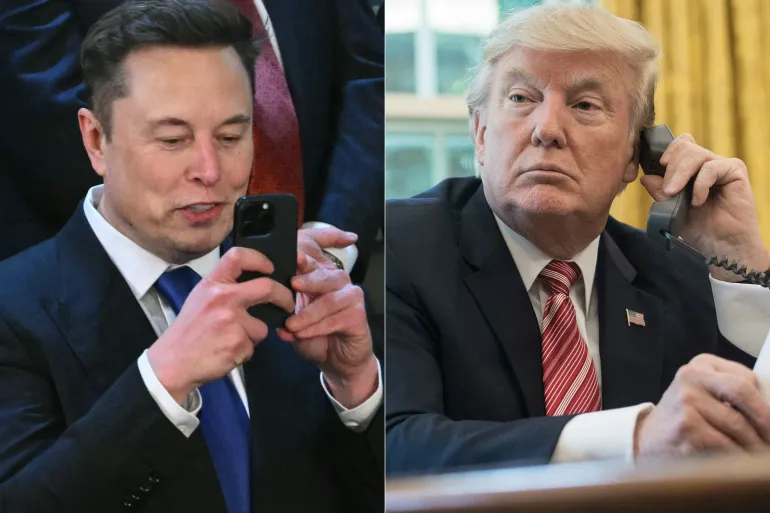The once-strong alliance between former President Donald Trump and tech magnate Elon Musk has dramatically unraveled, culminating in a public and politically charged feud that threatens to reshape U.S. politics and space policy.
From Allies to Adversaries
Their relationship began in 2016 with mutual skepticism—Musk publicly questioned Trump’s fitness for office—but evolved into a strategic partnership. Musk joined Trump’s economic advisory councils and later co-led the Department of Government Efficiency (DOGE), a Trump initiative aimed at cutting federal waste and bureaucracy. Musk also became the largest individual donor of the 2024 election cycle, contributing over $290 million to Republican campaigns.
However, tensions simmered beneath the surface. Musk’s resignation from DOGE on May 30, 2025, marked a turning point. He cited disillusionment with the administration’s spending priorities, particularly the “One Big Beautiful Bill,” a Trump-backed measure projected to add $3 trillion to the federal deficit.
The Feud Ignites
The conflict escalated rapidly. Musk publicly criticized the spending bill, labeling it an “abomination,” and accused Trump of ingratitude, asserting that Trump’s 2024 election victory would have been impossible without his support.
In retaliation, Trump threatened to terminate federal contracts with Musk’s companies, including approximately $22 billion in SpaceX government contracts. Musk responded by announcing plans to decommission SpaceX’s Dragon spacecraft, NASA’s exclusive U.S. vessel for transporting astronauts to the International Space Station—a decision he later reversed.
The feud took a personal turn when Musk alleged, without evidence, that Trump was implicated in the Jeffrey Epstein files, further inflaming tensions.
Political and Economic Fallout
The breakdown of their alliance has significant implications. SpaceX’s government contracts are now at risk, potentially disrupting U.S. space initiatives, including collaborative international efforts at the ISS and plans to send humans to Mars and the moon.
Politically, Musk has hinted at forming a new centrist political party, polling his 200 million followers on X (formerly Twitter) about the idea. An overwhelming 83.4% supported the creation of a new centrist political option, indicating Musk’s growing discontent with the existing political landscape.
Meanwhile, the Republican Party faces potential fundraising challenges, as Musk’s substantial financial support may no longer be guaranteed.
A Cautionary Tale
The Trump-Musk fallout serves as a cautionary tale about the volatility of alliances built on convenience rather than shared principles. Their partnership, once a powerful force in American politics and industry, has devolved into a public spectacle with far-reaching consequences.
As both men navigate the aftermath, the political landscape remains uncertain, with potential shifts in party dynamics, policy directions, and the future of U.S. space exploration hanging in the balance.




